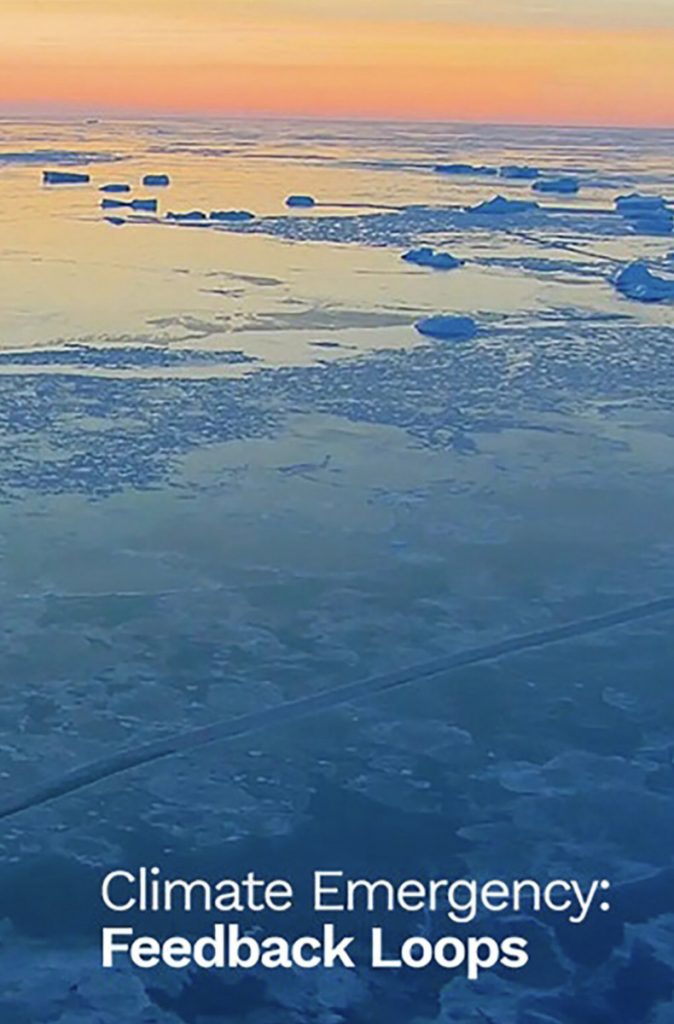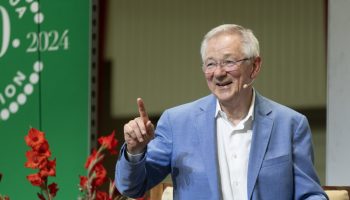SARA TOTH – EDITOR

As part of a partnership between the Toronto-based Planet in Focus International Environmental Film Festival and Chautauqua Institution, at 10 a.m. Aug. 13 at Chautauqua Cinema, the Cinema will screen “Climate Emergency: Feedback Loops.” Chautauquan Bestor Cram, who is senior producer and founder of Northern Lights Production, will be present for a Meet the Filmmaker event following the screening.
“Climate Emergency: Feedback Loops,” produced by Northern Lights, is a series of short educational films, narrated by Richard Gere, that feature 12 world-renowned climate scientists who are conducting cutting-edge research on feedback loops — climate feedbacks are processes that can either amplify or diminish the effects of climate forces.
Cram said the series of films were created to advance people’s understandings of the various aspects of the science of climate change.
“Feedback loops, as an area, wasn’t getting as much attention, and in some sense there’s actually an optimistic view they can impart,” Cram said. “Yes, loops are going in one direction, but they can change, they can balance.”
Cram is a filmmaker, not an climate expert, he stressed — he’ll be leaving the bulk of the science to Mark Wenzler, director of Chautauqua’s Climate Change Initiative, during their conversation today at the Cinema. But, he said to think of feedback looks as a series of chain reactions taking place in the environment.
“If water temperature in the seas gets hotter, it causes a killing off of coral — a fundamental breeding ground for fish, and thus the food supply for one-third of the world’s population,” Cram said. “ … The ocean is a large receptor of heat, and much of the heat is being trapped in our ecosystems because of the greenhouse gas effect — and that then adds even more to the temperature rise.”
Reefs are damaged, sometimes permanently, but Cram noted that “there are some coral (species) that are adapting, and scientists are trying to figure out what kind of adaptation takes place.” There is also enough data to suggest that when temperatures decrease, reefs can return to health — hence the optimism.
“We know when those changes are reversed, the loops move in the opposite direction,” Cram said. “There’s a resilience here; nature can repair itself.”
Work on the films began before COVID-19 hit, during a time “when there was still a challenge to climate science,” Cram said.
“There was a great deal of noise as to whether or not we should trust the scientists when it comes to climate change,” he said. “We wanted to advocate for trusting the science. (Combating) climate change is a human endeavor, and people coming together to solve the problems. And I see film as being a catalyst.”
“Climate Emergency: Feedback Loops” launched on Jan. 9 with a livestream event that also featured activist Greta Thunberg in conversation with His Holiness The Dalai Lama.
Today’s screening is free of charge, and seats can be reserved at the door, or by clicking the “Films for Change” link at chautauquacinema.com.




